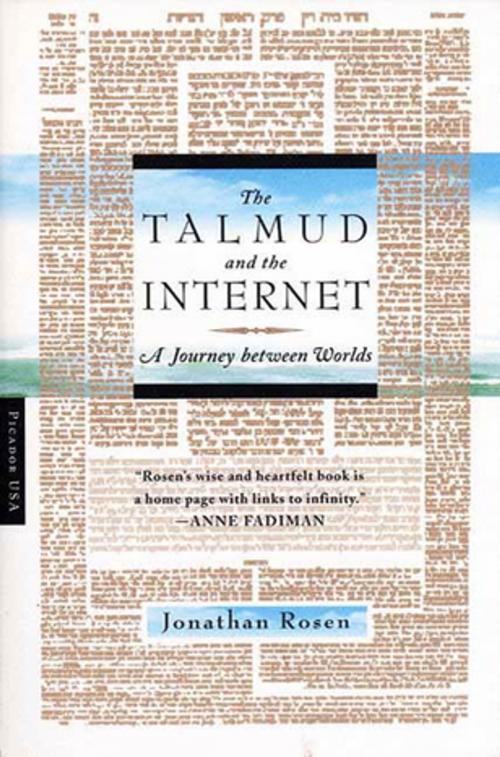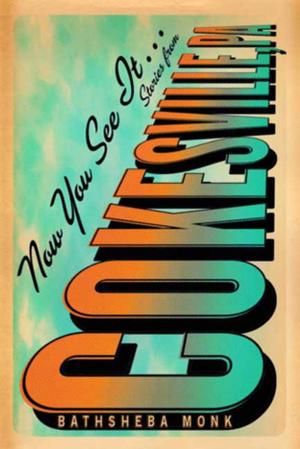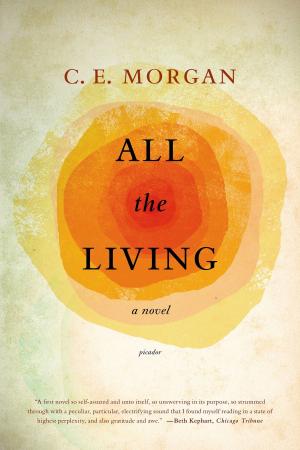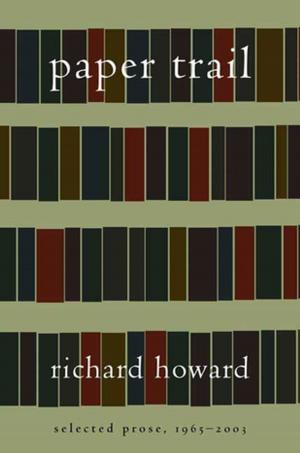The Talmud and the Internet
A Journey between Worlds
Nonfiction, Religion & Spirituality, Judaism, Talmud, Social & Cultural Studies, Social Science, Cultural Studies, Popular Culture, Computers, Internet| Author: | Jonathan Rosen | ISBN: | 9781429935883 |
| Publisher: | Farrar, Straus and Giroux | Publication: | April 1, 2010 |
| Imprint: | Farrar, Straus and Giroux | Language: | English |
| Author: | Jonathan Rosen |
| ISBN: | 9781429935883 |
| Publisher: | Farrar, Straus and Giroux |
| Publication: | April 1, 2010 |
| Imprint: | Farrar, Straus and Giroux |
| Language: | English |
"Not long after my grandmother died, my computer crashed and I lost the journal I had kept of her dying." So begins this powerful, personal consideration of modern technology and ancient religious impulses by the celebrated young novelist, essayist, and culture editor of the Forward. Jonathan Rosen blends religious history, memoir, and literary reflection as he compares the fortunate life of his American-born grandmother to the life of his European-born grandmother who was murdered by Nazis.
The Talmud and the Internet explores the contradictions of Rosen's inheritance and toggles between personal paradoxes and those of the larger world. Along the way, he chronicles the remarkable parallels between a page of Talmud and the home page of a Web site. In the loose, associative logic and the vastness of each, he discovers not merely the disruption of a broken world but a kind of disjointed harmony. In the same way that the Talmud helped Jews survive after the destruction of the Temple by making Jewish culture portable and personal, the all-inclusive Internet serves a world that is both more uprooted and more connected than ever before. In this profound, ultimately hopeful meditation, Rosen charts the territory between doubt and belief, tragedy and prosperity, the world of the living and the world of the dead.
"Not long after my grandmother died, my computer crashed and I lost the journal I had kept of her dying." So begins this powerful, personal consideration of modern technology and ancient religious impulses by the celebrated young novelist, essayist, and culture editor of the Forward. Jonathan Rosen blends religious history, memoir, and literary reflection as he compares the fortunate life of his American-born grandmother to the life of his European-born grandmother who was murdered by Nazis.
The Talmud and the Internet explores the contradictions of Rosen's inheritance and toggles between personal paradoxes and those of the larger world. Along the way, he chronicles the remarkable parallels between a page of Talmud and the home page of a Web site. In the loose, associative logic and the vastness of each, he discovers not merely the disruption of a broken world but a kind of disjointed harmony. In the same way that the Talmud helped Jews survive after the destruction of the Temple by making Jewish culture portable and personal, the all-inclusive Internet serves a world that is both more uprooted and more connected than ever before. In this profound, ultimately hopeful meditation, Rosen charts the territory between doubt and belief, tragedy and prosperity, the world of the living and the world of the dead.















